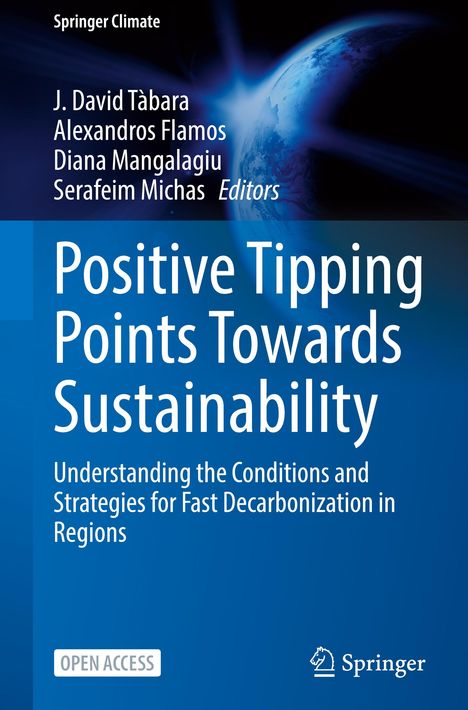Positive Tipping Points Towards Sustainability
Positive Tipping Points Towards Sustainability
Buch
- Understanding the Conditions and Strategies for Fast Decarbonization in Regions
- Herausgeber: J. David Tàbara, Alexandros Flamos, Diana Mangalagiu, Serafeim Michas
- Springer Nature Switzerland, 03/2024
- Einband: Gebunden, HC runder Rücken kaschiert
- Sprache: Englisch
- ISBN-13: 9783031507618
- Artikelnummer: 11807727
- Umfang: 364 Seiten
- Nummer der Auflage: 2024
- Auflage: 2024
- Gewicht: 711 g
- Maße: 241 x 160 mm
- Stärke: 26 mm
- Erscheinungstermin: 23.3.2024
Achtung: Artikel ist nicht in deutscher Sprache!
Klappentext
This open access book provides the first comprehensive review of the state of the art of social tipping points applied to energy systems from a social interdisciplinary perspective. It does so by presenting a novel theory of systemic and transformative change, linking it to empirical cases assisted with relevant assessment methodologies, including modeling. The authors unveil the narratives and visions, the transformative capacities as well as deliberate strategies and collective actions that at one point in time have been able - or were prevented - to tip a given social-ecological system towards low-carbon, sustainable trajectories in diverse high-intensive carbon regions around the world.This volume shows that self-reinforcing learning feedbacks connecting transformative solutions and strategies across scales and domains can be induced by targeted policy interventions both in local and regional contexts. It further indicates how changes in behavioral patterns, supported by good governance of disruptive technologies, carbon (dis)investment and finance processes as well as new forms of civic engagement, can create the necessary transformative enabling conditions for the emergence of positive tipping points towards low-carbon sustainable futures.
The book is a must-read for students, researchers, and scholars, as well as policy-makers and practitioners interested in a better understanding of sustainability, climate, and energy issues and in assessing the potential impacts and effectiveness of strategic interventions aimed at accelerating just sustainable decarbonization processes.


